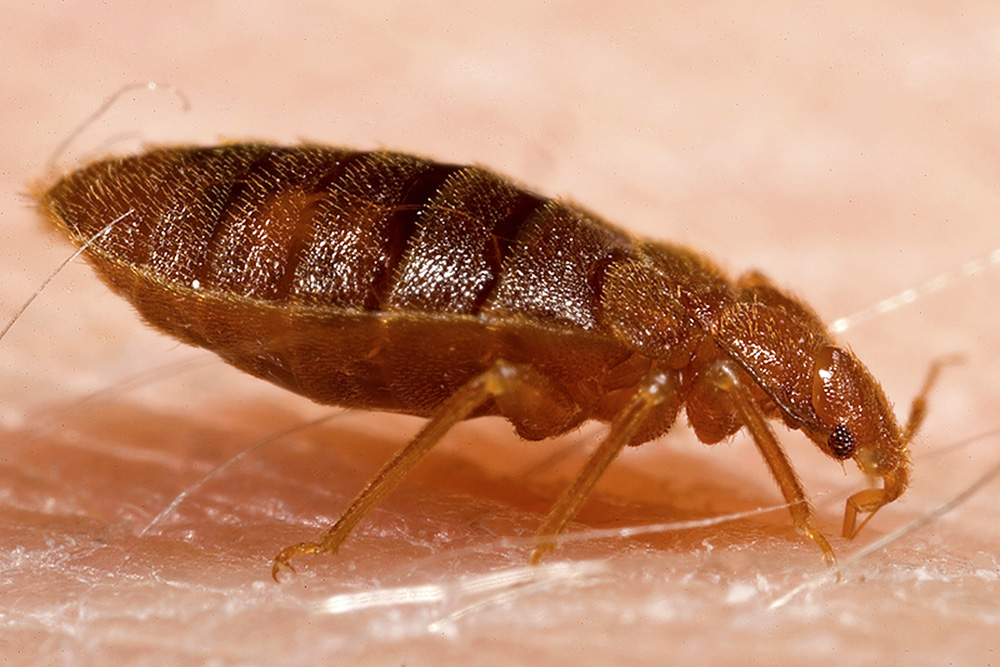Expert Kings Bug Control Services Cincinnati OH
Expert Kings Bug Control Services Cincinnati OH
Blog Article
Sorts Of Parasite Control: Which Approach Is Right for Your Invasion?
When confronted with a parasite problem, the choice of a suitable method for pest control is essential in efficiently managing the situation. From chemical therapies to biological services, there exists a variety of methods that can be utilized to address various kinds of pests. Each technique features its very own set of considerations and advantages, making the decision-making process a nuanced one. Recognizing the subtleties of each approach and reviewing their compatibility with the certain pest problem available is vital for achieving long-lasting success in pest monitoring. By exploring the different types of insect control methods available, individuals can make enlightened decisions tailored to their special situations, making certain a much more effective and sustainable end result in pest elimination.
Chemical Parasite Control
Chemical bug control involves using synthetic or naturally acquired chemicals to manage and eradicate pest populaces efficiently. This approach is typically utilized in farming, forestry, and domestic settings to fight a large range of insects, including rats, weeds, and bugs. Making use of chemical pesticides can offer quick and targeted remedies to pest infestations, making it a popular choice for several individuals and organizations.
Among the vital advantages of chemical bug control is its ability to swiftly get rid of parasites, minimizing the threat of damage to plants, building, and human wellness. By utilizing specific chemicals that target certain bugs, this method can successfully manage infestations while minimizing harm to beneficial microorganisms and the setting when used correctly.
Nonetheless, making use of chemical pest control additionally elevates worries regarding prospective adverse results on non-target varieties, water resources, and human health. It is critical to adhere to safety and security standards, use chemicals responsibly, and take into consideration different insect control techniques to lessen these risks and guarantee lasting pest management techniques.
Biological Insect Control
Organic insect control, likewise known as biocontrol, makes use of living microorganisms to take care of and decrease bug populations naturally. This method utilizes the power of nature to control pests without the need for artificial chemicals. Biocontrol can include the introduction of natural opponents of the parasite species, such as bloodsuckers, killers, or microorganisms, to subdue pest populations. By using the insect's natural killers or microorganisms, biological insect control offers a ecologically pleasant and sustainable option to pest administration.

Mechanical Bug Control
Making use of hands-on and physical methods to manage bug populations, mechanical parasite control uses a different technique that does not count on using living organisms or synthetic chemicals. This method involves the use of barriers, traps, or various other tools to physically deter or get rid of bugs. By obstructing parasite entry points or establishing address catches to capture them, mechanical pest control can efficiently lower infestations without introducing chemicals right into the setting.
One typical example of mechanical insect control why not look here is making use of mesh screens on doors and windows to stop bugs from going into structures. This straightforward yet reliable method acts as a physical barrier, keeping bugs out while permitting appropriate ventilation. Additionally, tools like mousetraps, fly swatters, and ultrasonic repellents fall under the mechanical bug control group.
While mechanical parasite control methods can be labor-intensive and require regular tracking and upkeep, they use a sustainable and eco-friendly solution for managing bug invasions. By combining different mechanical methods, building proprietors can produce a detailed pest control technique that reduces reliance on chemical pesticides.
Physical Parasite Control

Some typical physical parasite control approaches consist of making use of obstacles such as webs or displays to stop parasite access, catches to record and get rid of insects, and hand-picking to physically get rid of bugs from plants or structures. Furthermore, methods like warm therapies can be used to regulate bugs like bed insects by raising the temperature to levels that are deadly to the insects.
Physical parasite control is especially useful in incorporated pest monitoring (IPM) methods, where several insect control approaches are incorporated for efficient pest administration while lessening making use of chemicals. By making use of physical parasite control techniques, people can effectively resolve insect invasions with very little ecological impact.
Integrated Pest Management
When implementing physical bug control techniques as component of bug management strategies, Integrated Pest Management (IPM) becomes a comprehensive technique that leverages different techniques to properly manage pest populations. IPM concentrates on lasting avoidance of bugs with a combination of organic, social, physical, and chemical devices customized to specific insect concerns. By integrating multiple control strategies, IPM intends to lessen the dangers connected with pests while also lowering reliance on chemical services.
One secret facet of IPM is the emphasis on tracking and evaluating pest populaces to determine the most suitable control techniques. This proactive approach enables very early dig this intervention and targeted techniques, resulting in more reliable insect administration. Furthermore, IPM advertises eco-friendly techniques by prioritizing non-chemical control approaches and just making use of pesticides as a last resource.
Conclusion

By making use of the pest's all-natural killers or microorganisms, organic parasite control uses a eco friendly and sustainable option to pest management. - Kings exterminator cincinnati
Utilizing manual and physical techniques to take care of bug populaces, mechanical pest control supplies an alternative strategy that does not rely on the usage of living organisms or synthetic chemicals.A reliable technique to managing insect populaces without relying on chemical or organic techniques entails the usage of physical pest control strategies.When executing physical pest control approaches as component of insect management methods, Integrated Parasite Management (IPM) emerges as a thorough method that leverages numerous strategies to effectively control pest populations. Chemical pest control includes the use of chemicals, biological pest control utilizes all-natural predators, mechanical parasite control entails physical barriers, physical bug control includes capturing or removing insects, and integrated bug management combines multiple methods for an all natural method to pest control.
Report this page